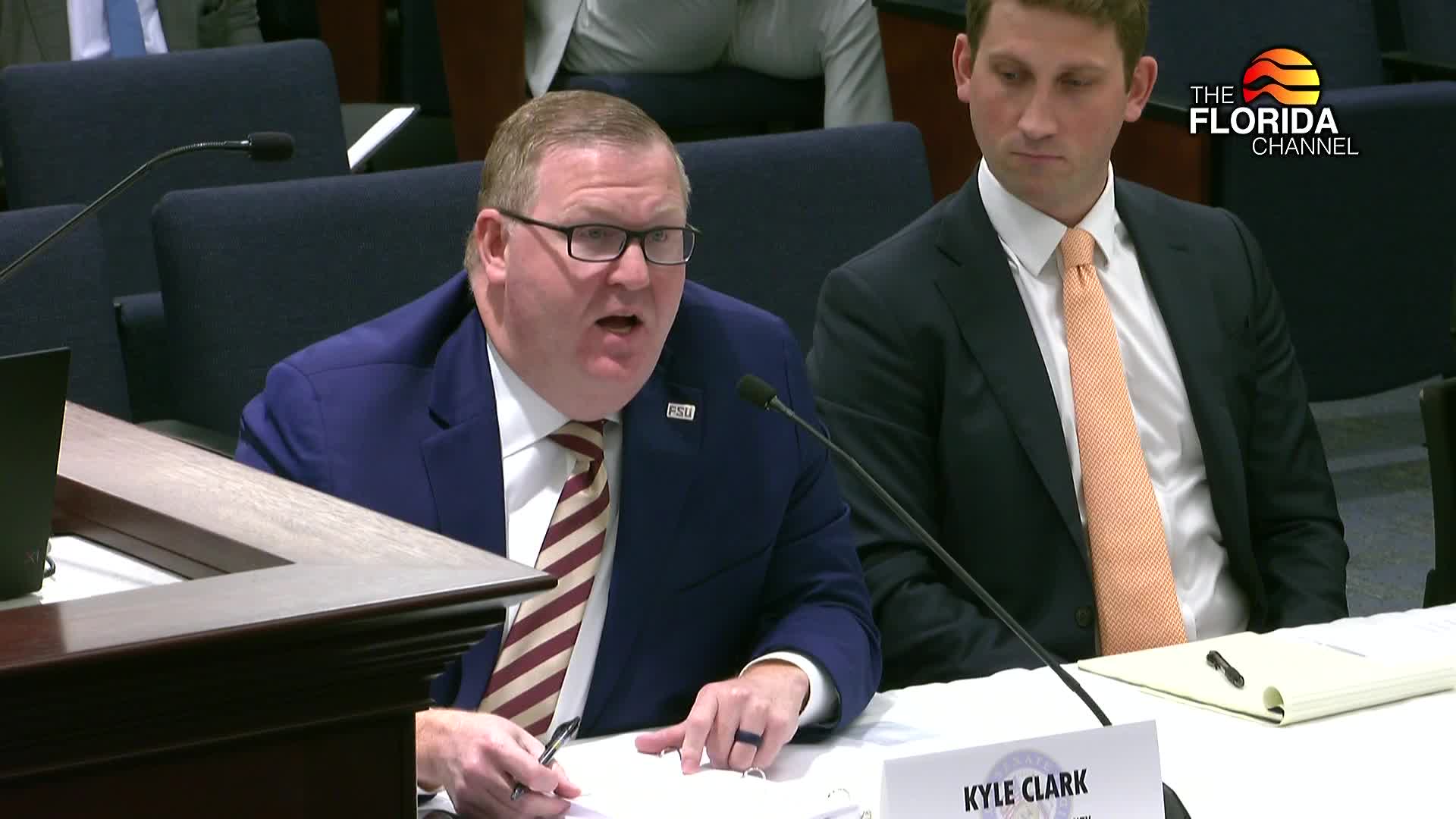Chancellor proposes easing student fee regulations for better funding flexibility
March 11, 2025 | Higher Education Appropriations Subcommittee, House, Legislative, Florida
This article was created by AI summarizing key points discussed. AI makes mistakes, so for full details and context, please refer to the video of the full meeting. Please report any errors so we can fix them. Report an error »

In a recent meeting of the Florida State Legislature's Appropriations Committee on Higher Education, discussions centered on the need to reform the laws and regulations governing student fees at state universities. The committee highlighted that many student fees are currently restricted by legislation, limiting their ability to adapt to rising costs and inflation.
The chancellor pointed out that these fees have remained unchanged for several years, despite increasing operational costs. This stagnation has created financial strain on activities funded by these fees, as state support has not kept pace with inflation. The committee discussed potential administrative changes that could streamline the process for adjusting these fees, allowing for more flexibility while keeping overall tuition costs stable.
One significant proposal involves relaxing the regulations that dictate how much fees can change and the approval process for these changes. By allowing for adjustments—such as increasing one fee while decreasing another—the universities could better allocate resources to areas in need without raising the total financial burden on students.
Additionally, the committee emphasized the importance of providing greater flexibility for out-of-state and professional schools. The College of Medicine, for example, offers tuition rates significantly lower than its national peers, which has raised concerns about the value provided to Florida taxpayers. The committee noted that the College of Medicine's tuition is $30,000 less per year than the national average and $10,000 less than many state counterparts.
As the committee continues to explore these issues, the potential for reforming fee structures could have significant implications for the financial health of Florida's higher education institutions and the affordability of education for students. The discussions reflect a growing recognition of the need to adapt to economic pressures while maintaining quality education and support for students.
The chancellor pointed out that these fees have remained unchanged for several years, despite increasing operational costs. This stagnation has created financial strain on activities funded by these fees, as state support has not kept pace with inflation. The committee discussed potential administrative changes that could streamline the process for adjusting these fees, allowing for more flexibility while keeping overall tuition costs stable.
One significant proposal involves relaxing the regulations that dictate how much fees can change and the approval process for these changes. By allowing for adjustments—such as increasing one fee while decreasing another—the universities could better allocate resources to areas in need without raising the total financial burden on students.
Additionally, the committee emphasized the importance of providing greater flexibility for out-of-state and professional schools. The College of Medicine, for example, offers tuition rates significantly lower than its national peers, which has raised concerns about the value provided to Florida taxpayers. The committee noted that the College of Medicine's tuition is $30,000 less per year than the national average and $10,000 less than many state counterparts.
As the committee continues to explore these issues, the potential for reforming fee structures could have significant implications for the financial health of Florida's higher education institutions and the affordability of education for students. The discussions reflect a growing recognition of the need to adapt to economic pressures while maintaining quality education and support for students.
View full meeting
This article is based on a recent meeting—watch the full video and explore the complete transcript for deeper insights into the discussion.
View full meeting